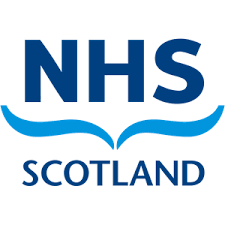Prior to referral, a meaningful conversation about the intervention and potential implications of referral needs to happen so the patient feels fully informed of benefits, risks, alternatives and what happens if they do nothing.
Below are links to resources relevant to this stage of the pathway, with a brief description of their content.
Realistic conversations: shared decision making in practice ![]()
This is an eLearning module available on Turas. It provides guidance for health and social care staff on Shared Decision Making (SDM).
Provider
- NHS Education for Scotland
Resource type
- eLearning module
User/audience
- Primary care
- Clinicians
- Community link workers
Aims/learning outcomes
- Describes shared decision making and why it’s important; identifies barriers.
- Explains the importance of presenting benefits and harms of a treatment in ways that people can understand and use to make decisions.
- Explains how to use the BRAN (Benefits, Risks, Alternatives, do Nothing) questions with a patient.
- Enables learner to structure a collaborative shared decision-making conversation.
- Enables learner to reflect on whether a good conversation has taken place.
Benefits
- Shared decision-making helps to ensure that the decisions about a person's care support the outcomes that matter to them.
How to access this resource
- Access via your Turas
 account.
account.
Estimated time for training
- 1 hour.
What matters to you conversations: a 'how to' guide ![]()
Sets out why these conversations are important and key actions to take before, during and after the conversation.
Provider
- EOLC Partners Think Tank
Resource type
- Webpage
User/audience
- Primary care
- Clinicians
- Public
Aims/learning outcomes
- Supports staff to improve communication, human connection and avoid personal judgements when having in-depth or focused conversations.
Benefits
- Good conversations give people permission and opportunity to be honest about what matters most to them.
How to access this resource
- Access as webpage
 or download as 1 page PDF doc
or download as 1 page PDF doc  .
.
Scotland’s House of Care - Health and Social Care Alliance Scotland ![]()
Provider
- Health and Social Care Alliance Scotland
Resource type
- Learning module, via NHS Education for Scotland (NES).
User/audience
- Primary care
- Clinicians
Aims/learning outcomes
- Support and planning tool which encourages and enables meaningful, person-focussed conversations which have a neutral power balance. A person’s data and information are shared with them prior to their conversation which prevents people from being forced to make quick decisions on health at consultation stage.
Benefits
Enables patients to:
- be an expert in themselves.
- know their ‘numbers’ and what is important.
- focus on areas that are important to them.
How to access this resource
- Practice based small group learning modules via NHS Education for Scotland (NES).
This webpage provides resources for patients to help them know what is going on with their own healthcare.
Provider
- NHS inform
Resource type
- Webpage
User/audience
- Public
Aim/outcome of resource
- Helps patients to ask the right questions in preparation for their upcoming appointment.
- Patients will better understand what’s going on with their own health and to help them make the right decisions.
Benefits
- Supports people with realistic medicine, and right decisions.
- May help people not to join lists if it’s not the best route forward.
Access requirement
- Available as webpage
 , and also downable as a short leaflet: it's ok to ask leaflet
, and also downable as a short leaflet: it's ok to ask leaflet 
These resources, available on Turas, help develop skills and knowledge to improve communication in your services and workplaces.
Provider
- Turas
Resource type
- eLearning modules
User/audience
- Staff with Turas access
Aims/learning outcomes
- Aimed at health, education, social work and voluntary sector staff who want to understand how to improve communication and services for people with communication support needs, this resource features clips of people with communication support needs.
Benefits
- Supports in having conversations regarding health and wellbeing, support in capacity and consent regarding discussions between patient and clinicians.
How to access this resource
- Access via your Turas
 account.
account.
Estimated time for training
- There are a number of modules that take approximately 30 minutes each to complete.
Provides resources for staff around having discussions with people.
Provider
- The health literacy place
Resource type
- Webpage
User/audience
- Public
Aims/learning outcomes
- Supports staff to improve communication, human connection and avoid personal judgements when having in-depth or focused conversations.
Benefits
- Gives people permission and opportunity to be honest about what matters most to them.
How to access this resource
- Access as webpage
 .
.
Provides information on national pathways.
Provider
- NHS Scotland, Centre for Sustainable Delivery
Resource type
- Webpage
User/audience
- Clinicians
Aims/learning outcomes
- The CfSD has a pathway process for development of pathways. This would include referral guidance, patient information, when to refer.
Benefits
- Supports professionals when making referrals.
How to access this resource
- Access as webpage
 .
.
